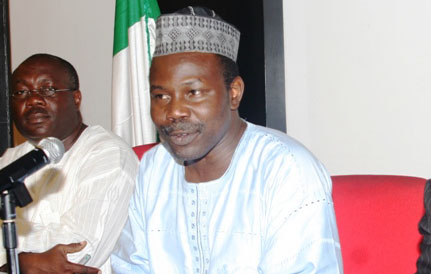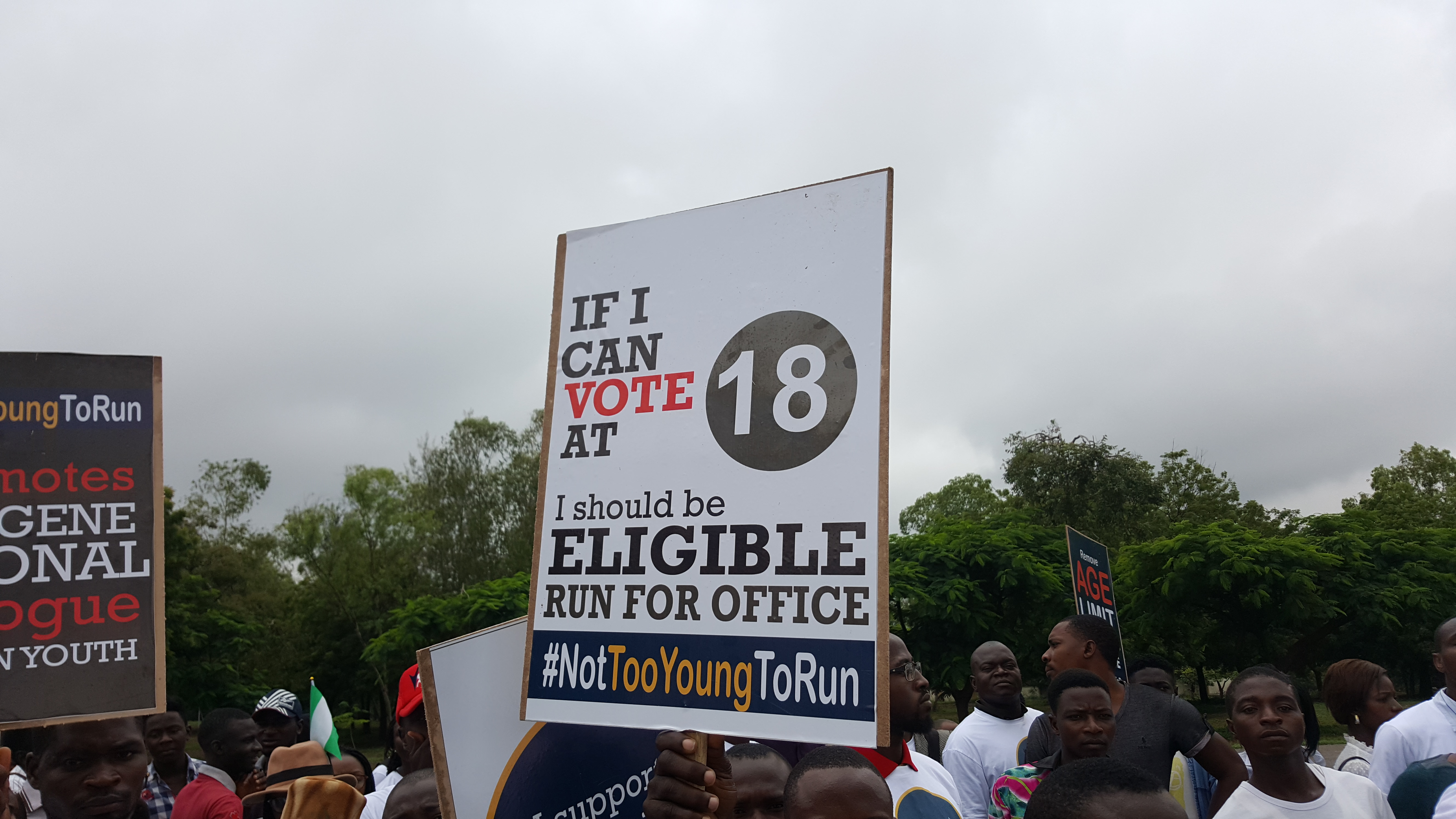The idea of enterprise development and enterprise education, and its contribution to the overall wealth of Nigeria is still regrettably undersold to and underexplored by those leading us. We seem, as in many cases, to be having difficulty to exploiting, to our best advantage, the opportunities and talents available inside Nigeria to turn around our own fortune and economy.
It is quiet backward-prone that with commercial banks leading several corporate-ills from mandatory SMS charges, unfettered withholding of funds, to unregulated stamp duties, unfair ATM maintenance charges, withdrawal charges, inter-bank transfer charges and so on, Nigeria ranks perhaps, arguably as the only country in the world, where every single commercial banks across the country charges citizens, entrepreneurs and small and medium scale enterprises various kinds of extortionist fees guised under all sorts of unreasonable service-charge regimes that are not in consonance with CBN’s consumer-services policy framework, and yet the Nigerian government and regulatory authorities that are suppose to be putting checks on these corporate erring are comfortably looking away.
I remember earlier in May this year, the Vanguard Newspaper and a few other Nigeria newspapers majorly headlined how only ten of all commercial banks in Nigeria net a whooping N138 billion naira from messaging-alerts and e-services alone in less than just a year of shrewd disservice. This prompted massive consumer protest campaigns across the country against excessive charges and a demand that one million non-essential bank accounts be closed to protect consumers’ rights in order to minimize the effects of excessive bank charges and service oversights. Everyday since then, and in retrospect of other retinue of unreported corporate ills and frauds in high and low places perpetrated across Nigerian banks, I wonder if any budding enterprise or entrepreneur could ever survive in such hostile economy as those in Nigeria.
In the comity of nations, researches and recent experiences has taught, that only a sound public and private sector, deliberately and carefully managed development, and government spending and support,help determine the course of economic development and social equity, especially for the poor and other disadvantaged groups, such as women, the elderly and budding youths. This pre-supposes that a well-functioning economy, business-community fostered by institutional and government cooperation, which delivers quality and supportive services consistent with citizens and business sector’s preferences and that fosters private market-led and entrepreneurial growth while managing fiscal resources prudently is considered critical to poverty alleviation, and for generating the trickles of development finance and resources needed to taking Nigeria out of its current economic recession.
Advertisement
In an era, where governments and banking institutions of several countries across the world are working vigorously on promoting business and people-engagement through supporting small and medium scale enterprises, and empowering entrepreneurs by training and financing them, and improving their capacities and market access, whatever it is that Nigeria commercial banks are doing to warrant, atimes over 600% increase in ATM card maintenance fees alone as well as other irrational service charges, surely is doing a great disservice to our business communities and getting our budding entrepreneurs struggling to keep head above waters around such avoidable fees that would certainly add to productivity costs and impact on their profits and survival margins. It is particularly pertinent now to call Nigeria government to order and implore it to seriously curtail these corporate excesses of Nigeria’s commercial banks before they finally kill our economy.
The Enterprise and e-commerce sector and markets alone in Nigeria is noted to worth a whooping $15 billion dollars, and capable of generating more than 1.2 million numbers of employment opportunities annually across-board, with a vibrant and unrivalled potency compared to other African countries. Yet, lack of aggressive and targeted financing support for startups and small-scale enterprise by Nigerian banks as well as an untold insensitivity of government to the plights of hundreds of thousands of young businesses across Nigeria, are one of the cesspool of misplaced priorities and undoing’s of government in an economy already chequered by recession, and that is already failing its business communities on most fronts.
A recent research by Analysys Mason, Emerald Group Publishing, Globeedu Group and the Centre for Promoting Ideas, showed that ‘Lack of Education’ at 62% leads the top four barriers (alongside lack of funding,cost of ICT and inadequate infrastructures and power supply) preventing Nigeria’s SME’s from growing and scaling. This pointed notably that it is high time the Nigerian government stop taking things with kids glove, get its acts together and start investing rightly in enterprise education and infrastructure development if it is truly genuine about its intention to lead Nigeria out of recession and provide employment opportunities for our teeming unemployed population.There is certainly no shortage of ideas and entrepreneurial acumen from Nigerian youths. With a population of 188 million out of which 70% are under 30, the human resources for generating trickles of financing for development are enormous in our entrepreneurial populace in Nigeria. Lagos alone is home to 23 million people. The Nigerian Bureau of Statistics reported recently that unemployment rate is now at 10.4% for the last quarter of 2016, yet it is estimated still that over 22.45 million Nigerians are either unemployed or underemployed. Many of these are struggling or potential entrepreneurs.
Advertisement
We obviously cannot continue like this. Nowis the time, more than ever before, that it is pertinent for government to undertake reviews, reinvigorate its policy positions, and understand that growing and learning from strategic frameworks such as the National Economic Empowerment Development Strategy (NEEDS) which culminated into vision 20:2020 in 2009 and the advancement to the National Development Plans and Transformation Agenda of 2011-2015 are key to long-term planning and enterprise development. These lessons has already been evidenced in, for instance, the Subsidy Re-investment and Empowerment Program (SURE-P), which comprised community service schemes and graduate internship schemes; and the Youth Enterprise with Innovation in Nigeria (YouWiN!) program, which comprised the Conditional Cash Transfer (CCT), vocational training, public works and science and technology initiatives, as well as the more recent N-power program for employment, the National Social Investment Programme (N-SIP), the Growth and Employment Project (GEM), Aso Villa Demo Day (AVDD), etc. that has now cumulatively impacted over 1.6 million young Nigerians and push the drive to promoting employment and enterprise to a notch level.However, more needs to be done as the 2016 African development Bank (AfDB) report rightly pointed that Nigeria still need to grow by double digit to create 1.8 million jobs annually in order to improve its economy and attract investments that will lead it out of recession.
As Nigeria government pursue this drive towards a progressive business and economic climate, the vast majority in our private, entrepreneurship and vibrant sectors should not been left wondering how best to reshape their progress and long-term planning strategies, in order for them to meet current and future national and international needs and demands. It is important that government economic recovery drive and supports for small businesses be focused on providing informed and well-researched insights and assurances into these challenges with a genuine purpose of actioning economic items which will help to fortify entrepreneurs, provide business-education and protect our markets for budding businesses. Anything less than this, will only continue to compound the already heightened sufferings of entrepreneurs, enterprises and heat our business economy as well as result in unmanageable multiplier effects on profit, business and the citizenry.
What is the benefit of a ‘giant-of-Africa’ government, which cannot proactively and aggressively seek to take pragmatic steps to facilitating the emergence of conducive, and predictable investment climate for the advancement of progressive market visions that can elevate its economy as a real hub and recognizable entrepreneurial hotspot in Africa? Instead of our government and banks suffocating struggling small businesses and service providers that are already being affected by our harsh business economy, it should remember that time is ticking, and Nigerians are going to ask questions and hold them accountable for their actions and inaction.
Fadeyi is a development and learning management expert based in United Kingdom and Director of International Centre for Development Initiatives (ICDI). He is pioneering innovative entrepreneurship across Nigeria. You can contact him at: [email protected]
Advertisement
Views expressed by contributors are strictly personal and not of TheCable.
Add a comment







